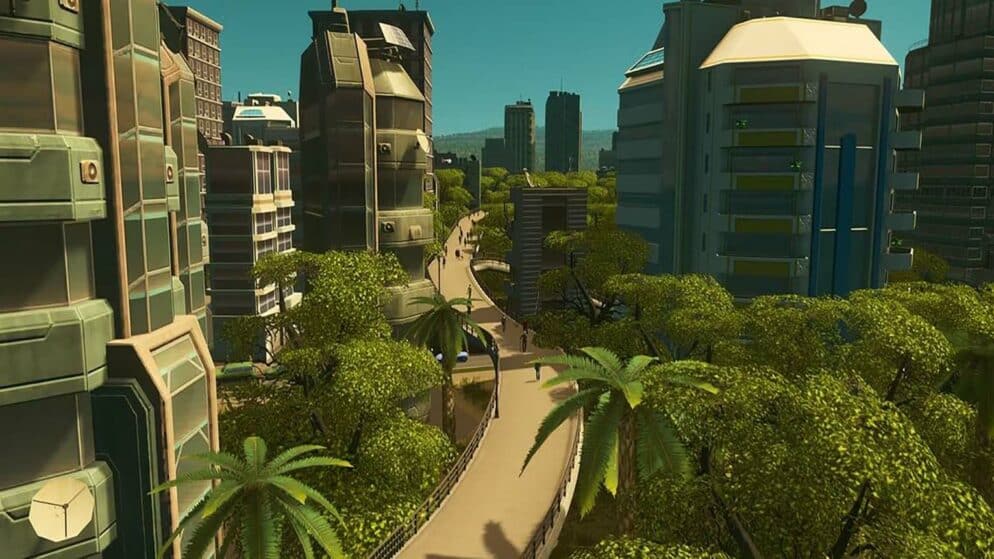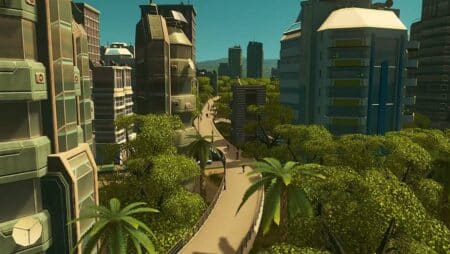

Cities Skylines June Update
Cities: Skylines has consistently evolved since its initial release, and the recent June update brings yet another wave of enhancements and adjustments to its gameplay. This latest patch, version 1.1.5f, focuses on refining the economic mechanics of the game, making financial management more challenging and transparent for players. These changes aim to deepen the strategic complexity, encouraging players to think more critically about their city's economic policies and decisions.
The update retrains aspects such as government subsidies and urban service maintenance costs, introducing new tools like a switch button for city services from external connections. Additionally, there have been improvements to rent and household expense calculations, potentially affecting the well-being and satisfaction of in-game citizens. These detailed adjustments promise a more immersive and realistic city-building experience for both seasoned and new players of Cities: Skylines.
Cities: Skylines Patch Notes 1.1.5f
Building Upgrade Rework
Players now have better control over upgrades in City Service buildings via the Selected Info Panel. They can freely remove all upgrade types and sub-buildings using the bulldozer. Sub-buildings are also relocatable and can be turned on or off. Additionally, sub-buildings can be selected for specific changes, offering more flexibility in placement within a certain radius of the main building.
A revised tutorial now introduces players to these improvements.
Economy Updates
Government Subsidies Removed
City management has become more challenging and transparent with the removal of government subsidies.
Economy Panel Changes
The Taxes and Services tabs now unlock at milestone 1, and the Production tab at milestone 2. A new city policy, “Import City Services,” allows players to manage the import of city services from Outside Connections, which are separated in the budget panel. This policy affects service vehicle dispatch based on its toggle status.
City Service Adjustments
- Increased chances for citizens entering and graduating from schools.
- Adults can apply to High School up to three times, albeit with a low chance.
- Garbage accumulation calculations now factor in various occupants, with buildings paying a fixed fee for collection.
- Wage payments for city service employees are now deducted from player funds, and electricity import prices have been increased.
- Notifications for ambulance and hearse dispatch have a longer delay before appearing.
Demand Changes
New factors influencing residential density include household wealth and family size. Household spawn rates are impacted by happiness, unemployment, demographics, and job availability. To reduce „Not enough customers“ complaints, commercial and industrial demand has been rebalanced, and taxes now significantly affect demand levels.
Employment Changes
Workers from Outside Connections have been adjusted; they neither pay taxes nor appear in population or workplace statistics. They seek new jobs more frequently and prefer city-based workplaces over external ones. Additionally, citizens must be free of health problems to be counted as employable. Unemployment duration has limits, after which citizens facing „High Rent“ may move away.
Households & Happiness
Households will relocate if they lack adult members. Rich and poor households have different location preferences based on neighborhood attractiveness and service proximity. Household spending is calculated after rent payments, adjusting their non-rent expenses reasonably. There’s also a decrease in senior citizens moving into the city and happiness factors have been tweaked.
Production and Company Rebalance
Various adjustments have been made to resource production, pricing, household wages, and tax income. Resource prices now include a base industrial processing cost and a commercial service price. Companies at risk of bankruptcy will relocate or shut down based on several economic factors.
Rent and Building Levels
Rent calculations have been revised, removing the virtual landlord and making upkeep equally divided among renters. Notifications for „High Rent“ are now income-based. Building level maintenance depends on whether renters can pay upkeep fees, influencing building condition.
Crime Rate Adjustments
Police service coverage has been optimized for zoneable assets, with regular patrols to manage crime. Several criteria for crime coverage and reduction have been updated, including vehicle crime reduction values, pathfinding limitations, and new crime probabilities.
Map Tiles and Roads
Purchasing new map tiles now incurs a cost, and upkeep fees have been added except for the initial tiles. The option to unlock all map tiles disables achievements and eliminates tile upkeep costs. Also, construction and upkeep costs for roads have been increased, and the return from bulldozing roads and buildings has been reduced. Upkeep details have been moved from tooltips to the Selected Info Panel for better clarity.
Other Adjustments
- Maximum household shopping capacity has been halved.
- Industry unlocking now begins from milestone 0.
- Fixed tax collection issues related to demolished cities.
















